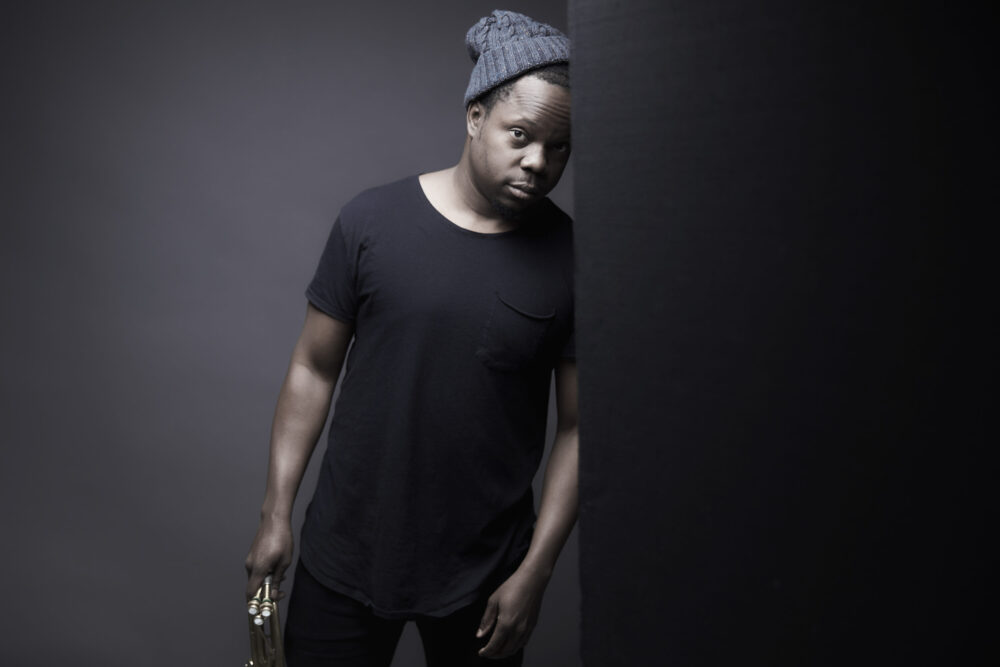Ambrose Akinmusire

© Pierrick Guidou
Ambrose Akinmusire’s (*1982 in Oakland) 15-year career has paradoxically placed him both at the center and periphery of jazz, most recently emerging in classical and hip-hop circles. He is constantly searching for new paradigms and is a master at weaving inspirations from other genres, art, and life in general into compositions that are as poetic and graceful as they are bold and unflinching. His unorthodox approach to sound and composition make him a regular in critics’ polls and have earned him grants and commissions from the Doris Duke Foundation, the MAP Fund, the Kennedy Center the Berlin Jazz Festival, and Monterey Jazz. Although Akinmusire continues to receive accolades, his reach always transcends himself, his instrument, genre, form, preconceived notions, and anything else that limits him.
Motivated primarily by the spiritual and practical value of art, Akinmusire seeks to eliminate the wall of scholarship that surrounds his music. He strives to create richly textured emotional landscapes that tell community stories, capture time, and change standards. While committed to continuing the tradition of black invention and innovation, he manages to honor tradition without being constrained by it.
Akinmusire is a rigorous practitioner with an uncompromising dedication to creation. »I have learned to accept the consequences of believing in invention and creativity. You will be misunderstood. But my blinders have gotten much longer and much thicker over the years.«
Born and raised in Oakland, California, Ambrose Akinmusire (pronounced ah-kin-MOO-sir-ee) was a member of the Berkeley High School Jazz Ensemble when saxophonist Steve Coleman took notice of him. Akinmusire was asked to join Coleman’s Five Elements and went on tour in Europe when he was just 19 years old and studying at the Manhattan School of Music. After returning to the West Coast to pursue a master’s degree at the University of Southern California, Akinmusire attended the Thelonious Monk Institute of Jazz in Los Angeles, where he studied with Herbie Hancock, Wayne Shorter and Terence Blanchard.